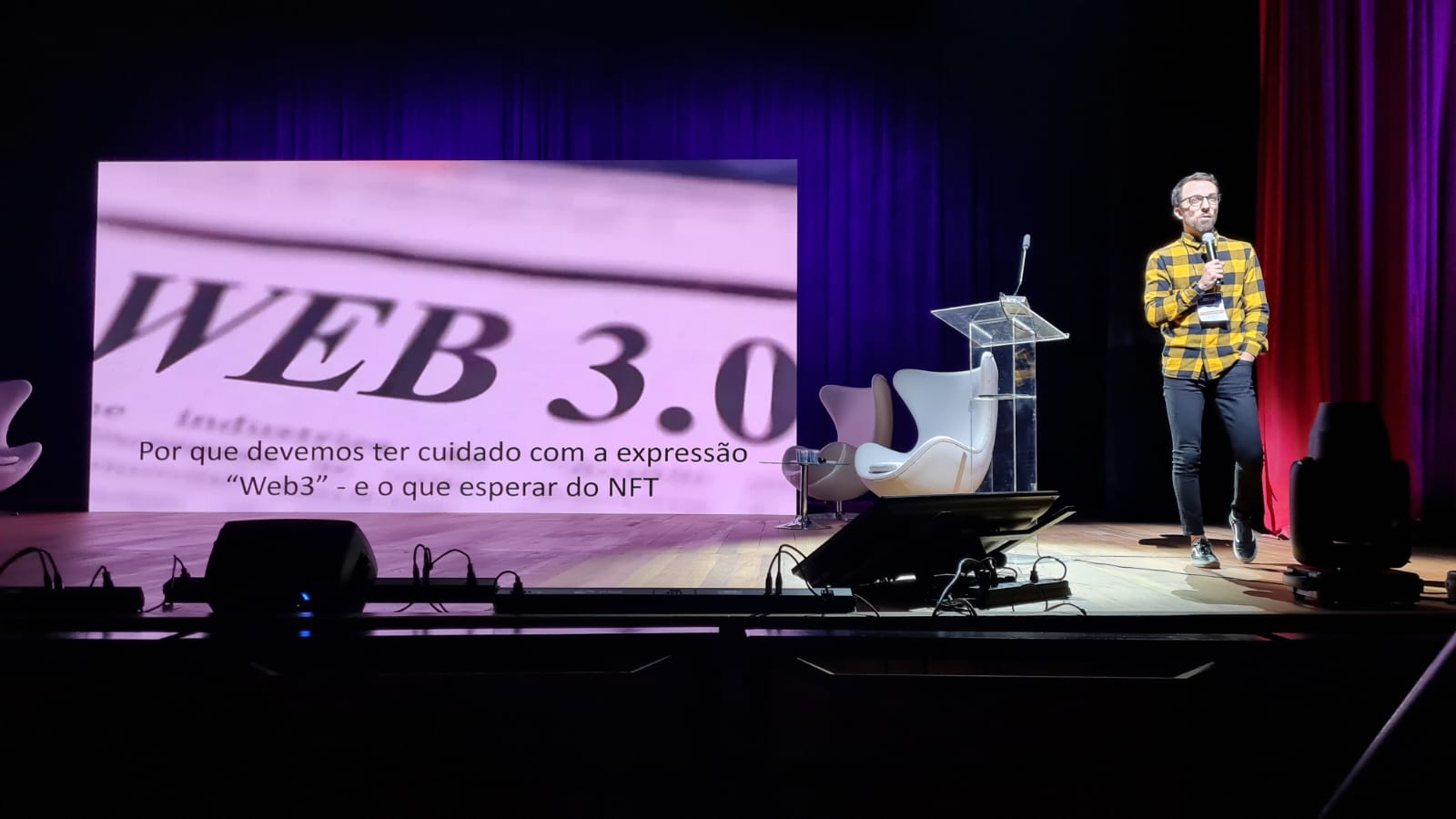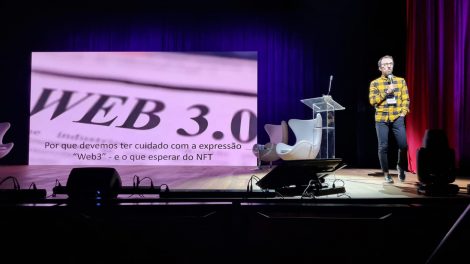Aberje Trends 2022: Web3, NFTS, activism, and governance are the topics of the second day
The last day of the event highlighted themes that permeate discussions about trends in corporate Communication, such as diversity, social media, and governance

The second and final day of Aberje Trends 2022 brought together more than 400 people at the Tomie Ohtake Theater in Sao Paulo. With panels and roundtables discussing key trends in Communication, the event expanded the debate on the future of the metaverse and NFTS for companies, activism, polarization, governance, and corporate memory.
Hamilton dos Santos, Executive Director of Aberje, opened and again highlighted the partnership with the Getulio Vargas Foundation (FGV) in creating the MBA in Business Communication Management.
The executive also highlighted two post-trend panels that would take place in the coming weeks: “Art as a Communication Platform” and “Sport as a Communication Platform.”
Rafael Sbarai, Head of Product and Operations for the Globo Group’s Cartola Express, spoke about “Web3, NFTS, and The Future of Companies in a Cookieless World” at the opening of the panels. He brought a critical view on how Web3 terminology may be misused, how much this can disrupt business analysis, and showed examples of exciting uses of NFTS.
The morning followed with the roundtable “Politics in Organizations and The New Trends in Activism.” The panel welcomed Ana Fontes, founder of the RME-Rede Mulher Empreendedora and the RME Institute; Cristiane Santos Blanch, Director of Communication and Corporate Affairs of Pfizer; Hélio Muniz, Chief Communications Officer/ ESG at Via and CEO of the Casas Bahia Foundation; and Michel Blanco, Head of Reputation and Corporate Communication of Natura &Co Latin America. The mediation was carried out by Fernanda Guimaraes, a special reporter for the newspaper O Estado de S. Paulo.
The debate revolved around polarization, as the brands need to be caved to position themselves (or not) to increasingly politicized and polarized audiences.
Hélio Muniz, from Via, stressed that companies must follow their values to deal with this moment of polarization. “The company’s perpetuity depends on the growth of society, a better society,” he said. “We live in a moment of compulsive transparency, and the election year only intensifies these things. At this time of hyperconnection, companies need to know themselves very well.”
In the afternoon, the first panel addressed “Corporate Governance, Diversity, and Transparency.” The panelists were Gabriela Blanchet, member of IBGC (Brazilian Institute of Corporate Governance) and President of IBDEE (Brazilian Institute of Corporate Law and Ethics); Malu Weber, Bayer’s Executive Director of Corporate Communications; Leandro Provedel, Corporate Manager of Communication and Brand of Engie Brasil; and Roberta Kuruzu, Executive Manager of Institutional Relations and Sustainability at Ypê. Wilson Ramos, the managing partner of the agency Race Comm, was the mediator.
One of the points highlighted in the debate is that the attitude of high leadership is crucial for corporations to become progressively more inclusive and transparent. Thus, they create diverse environments and good corporate governance. “High leadership support is critical for initiatives to progress, especially on issues related to diversity, inclusion, and good corporate governance. To have an inclusive environment, we must make everyone feel that they belong to that place and organization,” said Gabriela Blanchet.
The last panel of Aberje Trends, “Corporate Memory and the Digital World: How Organizations Preserve Their Culture in the Era of Change,” showed that past times’ teachings could point to a trend in the coming years.
The roundtable was composed of Paulo Nassar, CEO of Aberje and full professor of ECA/USP; Luiz Eduardo Serafim, Head of Brand & Communication and Innovation Leader of 3M; and Silvia Helena do Amaral, Manager of Government Relations and Corporate Communication of Sylvamo Brazil. Rosana Miziara, Institutional Relations of the Museu da Pessoa, was the mediator.
At the opportunity, Nassar quoted the French thinker Paul Ricoer, who says that the narrative organizes the experience of the human being, or a community or an institution, in time and space, and added that the narrative has the power to humanize an organization.
This year’s edition was sponsored by Bayer, Energisa Group, Engie, Gerdau, Itau, LATAM Airlines, LexisNexis, and P3K Communicação; supported by the Portuguese Association of Business Communication (APCE); Apsen Pharmaceutical, Sabesp, and TRY, with daily Estadão as media partner.
COMENTÁRIOS:
Destaques
- Sports as an instrument of Change
- Aberje Launches Newsletter with Economic Panorama
- Charting a Path to Responsible Communication: WPRF 2023 Wraps Up in Chennai, India
- Global Alliance AGM elects new Board 2023
- Aberje discloses its positions on the Fake News Bill (PL 2630/2020)
ARTIGOS E COLUNAS
Marcos Santos Maratona da vidaMônica Brissac Thought Leadership: marca pessoal x reputação corporativaLetícia Tavares Liderança comunicadora: um tema sempre atualHamilton dos Santos Comunicação é estratégica na economia contemporâneaCarlos Parente Um salto ornamental para mergulhar no pires




























